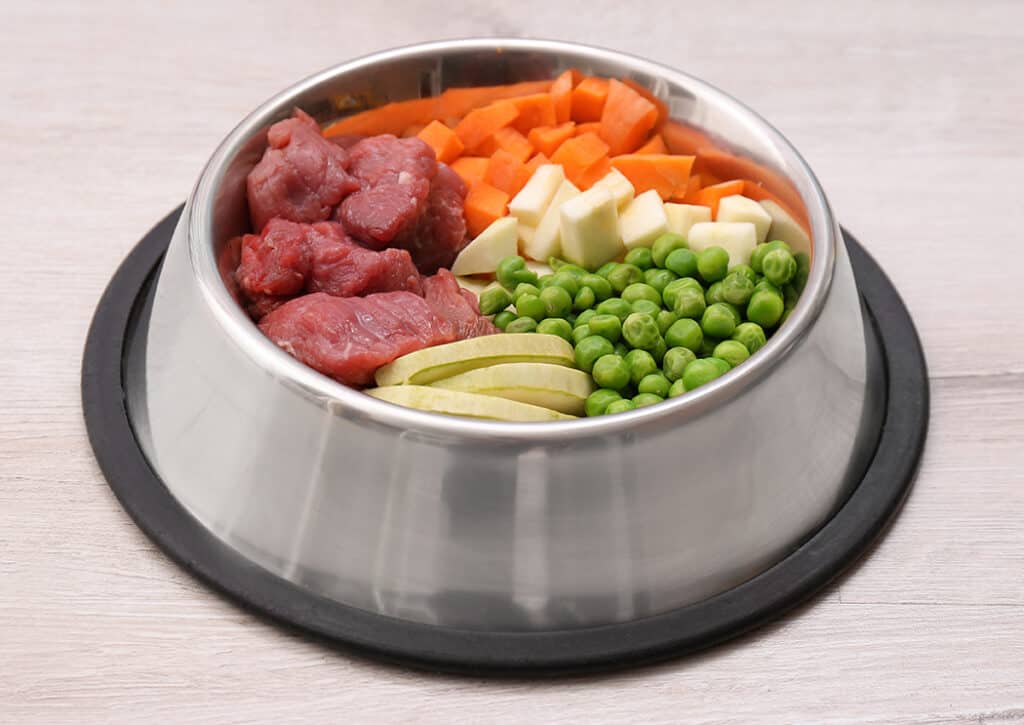Dogs are mans’ best friend. They are loyal, loving and provide us with endless amounts of entertaining stories. While your dog may be only a part of your life, to them you are everything. You are their entire world. It is, therefore, of the utmost importance to ensure the health and safety of your furry friend.
The pet food supermarket aisle is brimming with numerous brands of dog food, each claiming to be the healthiest option for your pooch. This may very well be the case, but there is a growing number of people who are opting out of feeding their dogs pellets.
These pellets are highly processed and could be the cause of obesity and cancer in your dog. Dog food is legally allowed to have something called 4-D meat in it. This is meat which has been taken from dead, diseased or even disabled animals. Added to this questionable meat is corn, which may be highly contaminated with pesticides, and grain swept up from the factory floor. Obviously, this is not the main component in all dog food brands and the general rule of thumb is, cheaper products generally utilize cheaper ingredients.
Products bought from your local vet may live up to their nutritional promise, but is it not safer to err on the side of caution? The option available to dog owners is none other than, human food. Here is a list of human food that will prove delicious and nutritious for your doggo.

1. Carrots
Munching on a carrot is one of the healthiest snacks for a human. The same is true for dogs. These are some of the health benefits that carrots offer your canine pet. Dental health may never have crossed your mind, but keeping your dog’s mouth and teeth clean is very important. Some owners have even managed to get into the routine of brushing their dog’s teeth. If you are not of this group, then give them a carrot.

Chewing on the veggie will mechanically remove plaque from their teeth. Carrots prevent runny stool. The high fiber content of carrots will help bulk up your dog’s stool, thus making messy and runny stool a thing of the past. Eyesight is improved due to the beta-carotene in carrots. Beta-carotene is a precursor to vitamin A, which is known to improve eyesight in humans and dogs alike. Vitamin A is an essential vitamin for dogs and is always included in commercial dog food.
If you are preparing your dog’s food at home, you need to make sure this is included in their diet. Luckily, carrots are loaded with this vitamin. In the correct amount, vitamin A boosts the immune system and improves skin and coat health. It should be noted, however, that vitamin A in large quantities can be toxic. Consult your vet on the correct dosage of vitamin A, before tossing a bag of carrots your dog’s way. Carrots are low in fat and calories.
If your furry child in on the podgy side, this veggie provides a snack which is low in both fat and calories. Carrots are not easily digested by dogs. In order to make the most of carrots’ nutritional content, slightly boil them first.
